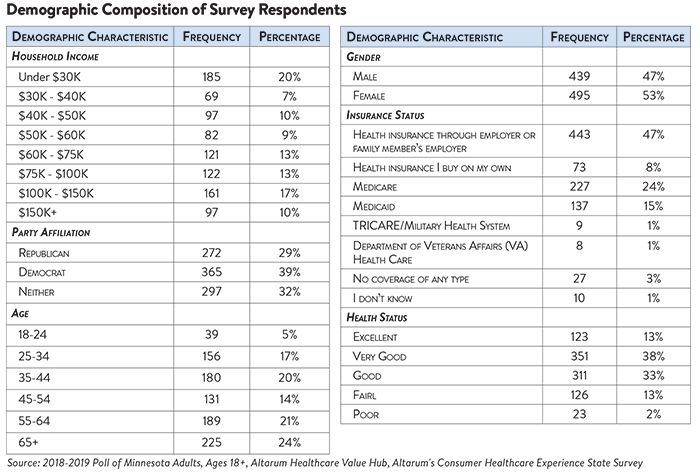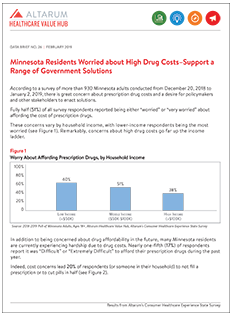Minnesota Residents Worried about High Drug Costs–Support a Range of Government Solutions
According to a survey of more than 930 Minnesota adults conducted from December 20, 2018 to January 2, 2019, there is great concern about prescription drug costs and a desire for policymakers and other stakeholders to enact solutions.
Fully half (51%) of all survey respondents reported being either “worried” or “very worried” about affording the cost of prescription drugs.
These concerns vary by household income, with lower-income respondents being the most worried (see Figure 1). Remarkably, concerns about high drug costs go far up the income ladder.
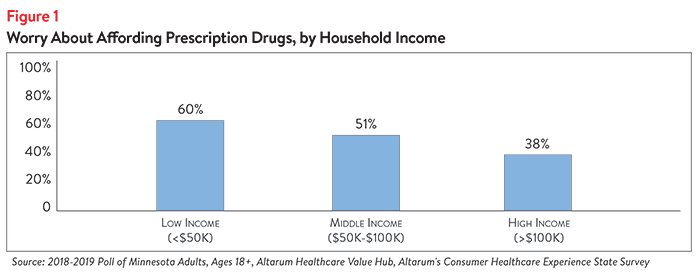
In addition to being concerned about drug affordability in the future, many Minnesota residents are currently experiencing hardship due to drug costs. Nearly one-fifth (17%) of respondents report it was “Difficult” or “Extremely Difficult” to afford their prescription drugs during the past year.
Indeed, cost concerns lead 20% of respondents (or someone in their household) to not fill a prescription or to cut pills in half (see Figure 2).
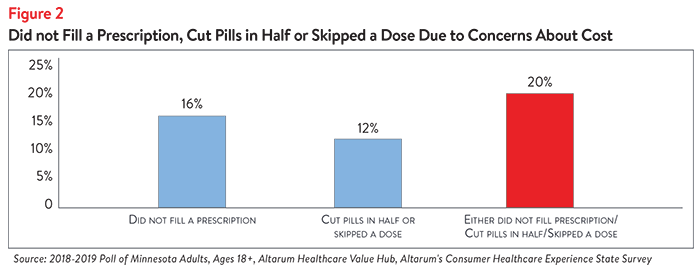
In light of these prescription drug cost concerns—as well as concern about high healthcare costs generally1—it is not surprising that Minnesota residents are extremely dissatisfied with the health system:
- Only 27% agree or strongly agree with the statement “We have a great health care system in the U.S.”
- While 80% agree or strongly agree “the system needs to change.”
When given more than 20 options, the option cited most frequently as being a “major reason” for high healthcare costs was drug companies charging too much money (see Figure 3).
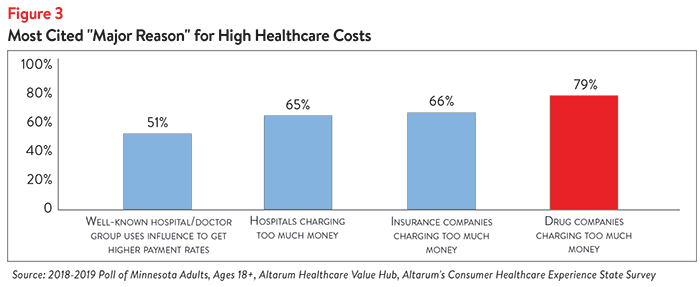
When it comes to tackling high drug costs specifically, respondents endorsed a number of strategies:
- 93%—Authorize the Attorney General to take legal action to prevent price gouging or unfair prescription drug price hikes
- 92%—Require drug companies to provide advanced notice of price increases and information to justify those increases
- 89%—Set standard prices for drugs to make them affordable
What is remarkable about the findings is high support for change regardless of the respondent’s political affiliation (Table 1).
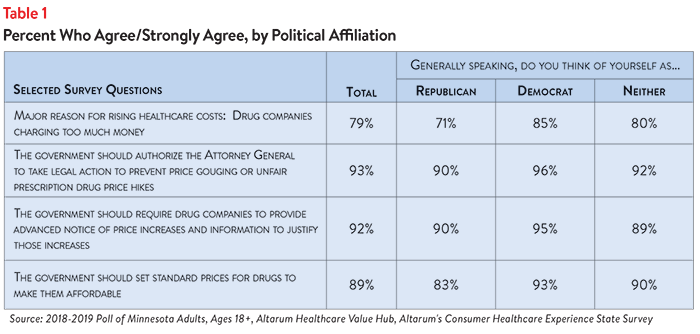
While government action was strongly viewed as more effective to address high drug costs, respondents also saw a role for themselves in solving problems. They reported actions they have already taken, like researching the cost of drug beforehand (38%), as well as future actions—84% believe that switching to a generic if given the option is one of the top things they can do personally to address affordability.
Note
1. Healthcare Value Hub, Minnesota Residents Struggle to Afford High Healthcare Costs; Express Support for a Range of Government Solutions Across Party Lines, Data Brief No. 25 (February 2019). http://www.healthcarevaluehub.org/Minnesota-2019-healthcare-survey/
Methodology
Altarum’s Consumer Healthcare Experience State Survey (CHESS) is designed to elicit respondents’ unbiased views on a wide range of health system issues, including confidence using the health system, financial burden, and views on fixes that might be needed.
The survey used a web panel from SSI Research Now containing a demographically balanced sample of approximately 1,000 respondents who live in Minnesota. The survey was conducted only in English and restricted to adults ages 18 and older. Respondents who finished the survey in less than half the median time were excluded from the final sample, leaving 934 cases for analysis with sample balancing occurring in age, gender and income to be demographically representative of Minnesota. After those exclusions, the demographic composition of respondents is as follows.
